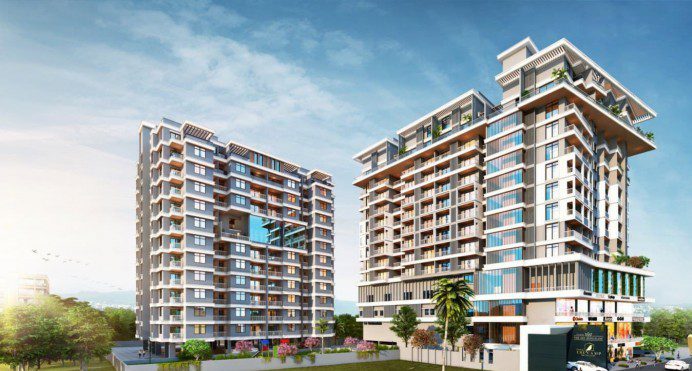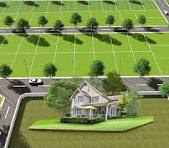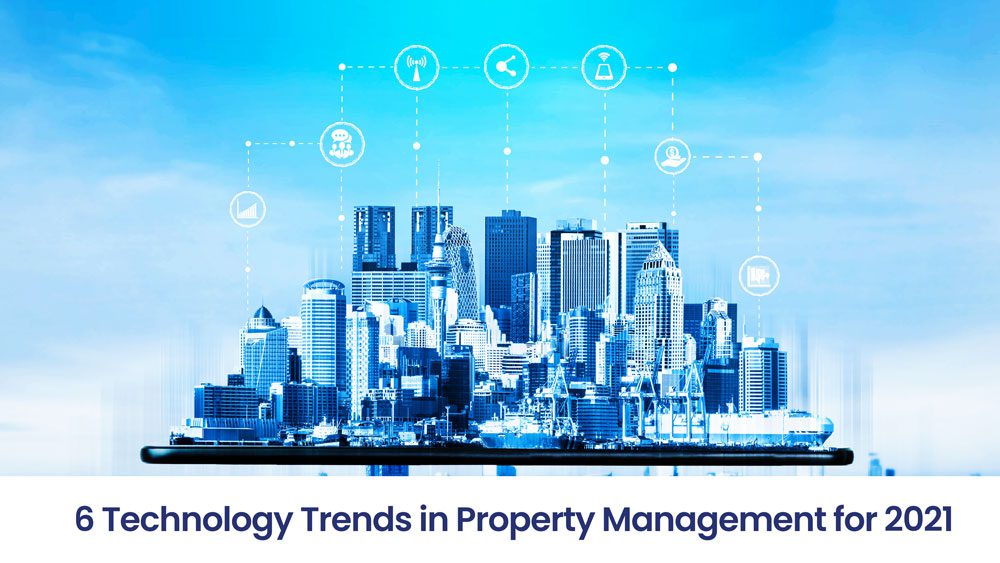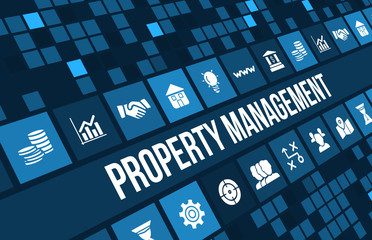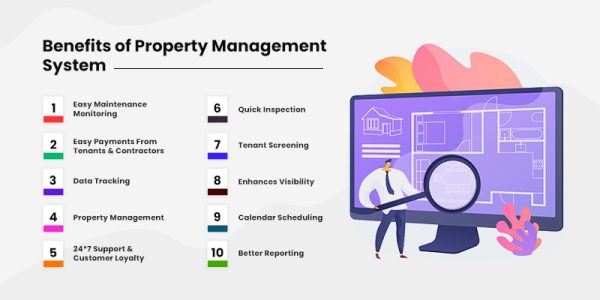Integrating Advanced Technology into Property Management Services for Enhanced Efficiency
In an era defined by technological innovation, the integration of advanced technology into property management services has become paramount for achieving enhanced efficiency, cost-effectiveness, and tenant satisfaction. From smart property management systems to AI-driven predictive analytics, the possibilities for leveraging technology to streamline operations and optimize resources are vast. This essay explores the various ways in which advanced technology is reshaping property management practices, revolutionizing the way properties are managed, maintained, and marketed.
How can IoT sensors improve efficiency in property management?
IoT sensors offer a multitude of ways to revolutionize efficiency within property management. By deploying these sensors strategically throughout buildings and properties, managers gain unprecedented insights into various systems and processes, leading to optimized operations, cost savings, and improved tenant satisfaction. Firstly, IoT sensors provide real-time data on occupancy levels, enabling managers to better understand how spaces are utilized throughout the day. With this information, they can adjust HVAC settings, lighting schedules, and cleaning routines to match actual demand, thus reducing energy waste and optimizing resource allocation.
Secondly, IoT sensors can monitor environmental conditions such as temperature, humidity, and air quality. This data allows for proactive maintenance to prevent issues like mold growth or equipment failures, ensuring a comfortable and healthy living or working environment for tenants. Thirdly, water leak detection sensors can help mitigate water damage by promptly alerting managers to any leaks or abnormalities in plumbing systems. Early detection not only minimizes property damage but also reduces repair costs and potential disruptions to tenants. Moreover, IoT sensors can be integrated with predictive maintenance algorithms to anticipate equipment failures before they occur. By monitoring the performance of critical systems like elevators, boilers, and HVAC units, managers can schedule maintenance tasks during off-peak hours, minimizing downtime and inconvenience for occupants. Additionally, sensors can enhance security by monitoring access points and detecting unauthorized entry or suspicious activities.
What are the benefits of using cloud-based property management software?
Cloud-based property management software offers a myriad of benefits that revolutionize the way property managers handle their operations, streamline processes, and enhance overall efficiency. Firstly, cloud-based software provides unparalleled accessibility and flexibility. Property managers can access critical data, documents, and tools from anywhere with an internet connection, enabling remote work and on-the-go management. This flexibility facilitates quicker response times to tenant inquiries, maintenance requests, and other operational needs, ultimately improving tenant satisfaction. Secondly, cloud-based platforms centralize data and streamline communication. Property managers can store all lease agreements, tenant information, maintenance records, and financial data in one secure location, eliminating the need for multiple disparate systems or manual paperwork. This centralized approach enhances organization, reduces administrative overhead, and minimizes the risk of errors or data loss.
Moreover, cloud-based property management software often integrates with other tools and services, such as accounting software, CRM systems, and maintenance tracking platforms. Seamless integration enhances workflow efficiency, automates repetitive tasks, and provides a holistic view of property performance and financial health. Additionally, cloud-based solutions offer scalability and agility.
Read More About Navigating Property Maintenance: Tips and Best Practices
How does AI contribute to predictive analytics in property management?
AI plays a pivotal role in predictive analytics within property management by harnessing the power of data to anticipate future trends, identify patterns, and make informed decisions. Through advanced algorithms and machine learning techniques, AI analyzes vast amounts of historical and real-time data to forecast various aspects of property management, leading to enhanced efficiency, cost savings, and improved decision-making processes. One significant way AI contributes to predictive analytics in property management is through maintenance optimization. By analyzing historical maintenance records, equipment performance data, and environmental factors, AI can predict when equipment is likely to fail or require servicing. These insights enable property managers to implement proactive maintenance schedules, minimizing downtime, reducing repair costs, and prolonging the lifespan of critical assets.
Furthermore, AI enhances predictive leasing and occupancy forecasting by analyzing market trends, demographic data, and historical occupancy rates. Property managers can leverage these insights to anticipate demand, adjust rental prices, and optimize marketing strategies to attract and retain tenants effectively. Additionally, AI algorithms can identify potential lease expirations or tenant turnover, allowing managers to proactively address vacancies and minimize revenue loss. Moreover, AI contributes to predictive risk management by analyzing factors such as credit scores, tenant behavior patterns, and market conditions to assess the likelihood of rent defaults or lease violations.
Can you explain the role of blockchain technology in property transactions?
Blockchain technology revolutionizes property transactions by providing a decentralized, transparent, and secure platform for recording and transferring ownership rights. At its core, blockchain is a distributed ledger that records transactions across a network of computers, ensuring that every transaction is immutable, timestamped, and tamper-proof. In the context of property transactions, blockchain eliminates the need for intermediaries such as banks, lawyers, and title companies, streamlining the process and reducing costs while enhancing trust and transparency. One key role of blockchain in property transactions is the creation of digital property titles or deeds. By tokenizing real estate assets and recording ownership rights on a blockchain, property transactions can be executed digitally, allowing for seamless peer-to-peer transfers without the need for traditional paper-based documents. This not only accelerates transaction times but also reduces the risk of fraud, errors, and disputes, as the ownership history is transparent and verifiable on the blockchain.
Moreover, blockchain facilitates fractional ownership and real-time trading of property assets through the issuance of digital tokens representing shares in real estate properties. Investors can buy, sell, and trade these tokens on blockchain-based platforms, enabling greater liquidity and accessibility to real estate markets previously inaccessible to individual investors. Additionally, blockchain enables automated smart contracts to govern property transactions, ensuring that contractual agreements are executed automatically once predefined conditions are met, thereby reducing the need for manual oversight and intervention.
Read More About Sustainable Property Management Practices in India
What advantages do virtual property tours offer in the leasing or selling process?
Virtual property tours offer numerous advantages in the leasing or selling process, enhancing convenience, accessibility, and efficiency for both buyers/tenants and sellers/landlords. Firstly, virtual tours provide potential buyers or tenants with the ability to explore properties remotely from the comfort of their own homes. This eliminates the need for physical visits, saving time and effort for all parties involved, particularly for those who may be located far away or have busy schedules. Secondly, virtual tours offer a highly immersive and interactive experience, allowing viewers to navigate through properties at their own pace and explore every detail from different angles.
This level of engagement provides a more comprehensive understanding of the property’s layout, features, and condition compared to traditional static photos or descriptions. Moreover, virtual tours enable sellers and landlords to showcase properties 24/7, reaching a wider audience without the limitations of physical open houses or appointments. This extended accessibility increases exposure and attracts more potential buyers or tenants, ultimately expediting the leasing or selling process.
Conclusion:
In conclusion, the integration of advanced technology into property management services holds immense potential for transforming the industry and driving efficiency to new heights. By embracing smart solutions such as IoT sensors, cloud-based software, AI-driven analytics, and virtual tours, property managers can unlock unprecedented insights, streamline processes, and deliver superior service to tenants and property owners alike. As technology continues to evolve, so too will the opportunities for innovation in property management, ultimately shaping a more sustainable, connected, and efficient future for real estate management.
Related Posts
The Best Residential Plots for Sale in Amaravati
The Best Residential Plots for Sale in Amaravati: A Comprehensive Guide Amaravati, the vibrant capital…
Top Locations for CRDA Approved Plots in Amaravathi
Top Locations for CRDA Approved Plots in Amaravathi Choosing the right location for investing in…
Why Invest in CRDA Approved Plots in Amaravathi
Why Invest in CRDA Approved Plots in Amaravathi Investing in CRDA (Capital Region Development Authority)…
How to Create a Tenant-Friendly Property: Tips for Landlords
Title: Why Invest in CRDA Approved Plots in Amaravathi Investing in CRDA (Capital Region Development…
The Role of Technology in Modern Property Management
Streamlining Property Management: The Impact of Technology in Modern Real Estate In the ever-evolving landscape…
Common Challenges in Tenant Management and How to Overcome Them
Common Challenges in Tenant Management and How to Overcome Them Tenant management is a crucial…
Essential Qualities to Look for in a Property Management Company
Essential Qualities to Look for in a Property Management Company Choosing the right property management…
Tips for Building a Strong Community in Multi-Family Rental Properties
10 Proven Strategies for Cultivating a Thriving Community in Multi-Family Rental Properties In the realm…
Best Practices for Conducting Background Checks on Potential Tenants
Ensuring Reliable Tenants: Best Practices for Background Checks In the realm of property management, securing…
Integrating Advanced Tech in Property Management
Integrating Advanced Technology into Property Management Services for Enhanced Efficiency In an era defined by…
Cost-Effective Solutions for Managing Maintenance in Property Management Services
Cost-Effective Solutions for Managing Maintenance in Property Management Services. In the realm of property management…
The Role of Property Management in Community Living
The Role of Property Management in Community Living Property management plays a pivotal role in…
Effective Tenant Retention Strategies
Effective Tenant Retention Strategies Effective tenant retention strategies are essential for landlords and property…
Benefits of Professional Property Management for Overseas Investors.
Benefits of Professional Property Management for Overseas Investors. Professional property management offers invaluable benefits for overseas…
The Future of Real Estate: Trends in Property Management
The Future of Real Estate: Trends in Property Management The future of real estate holds…

